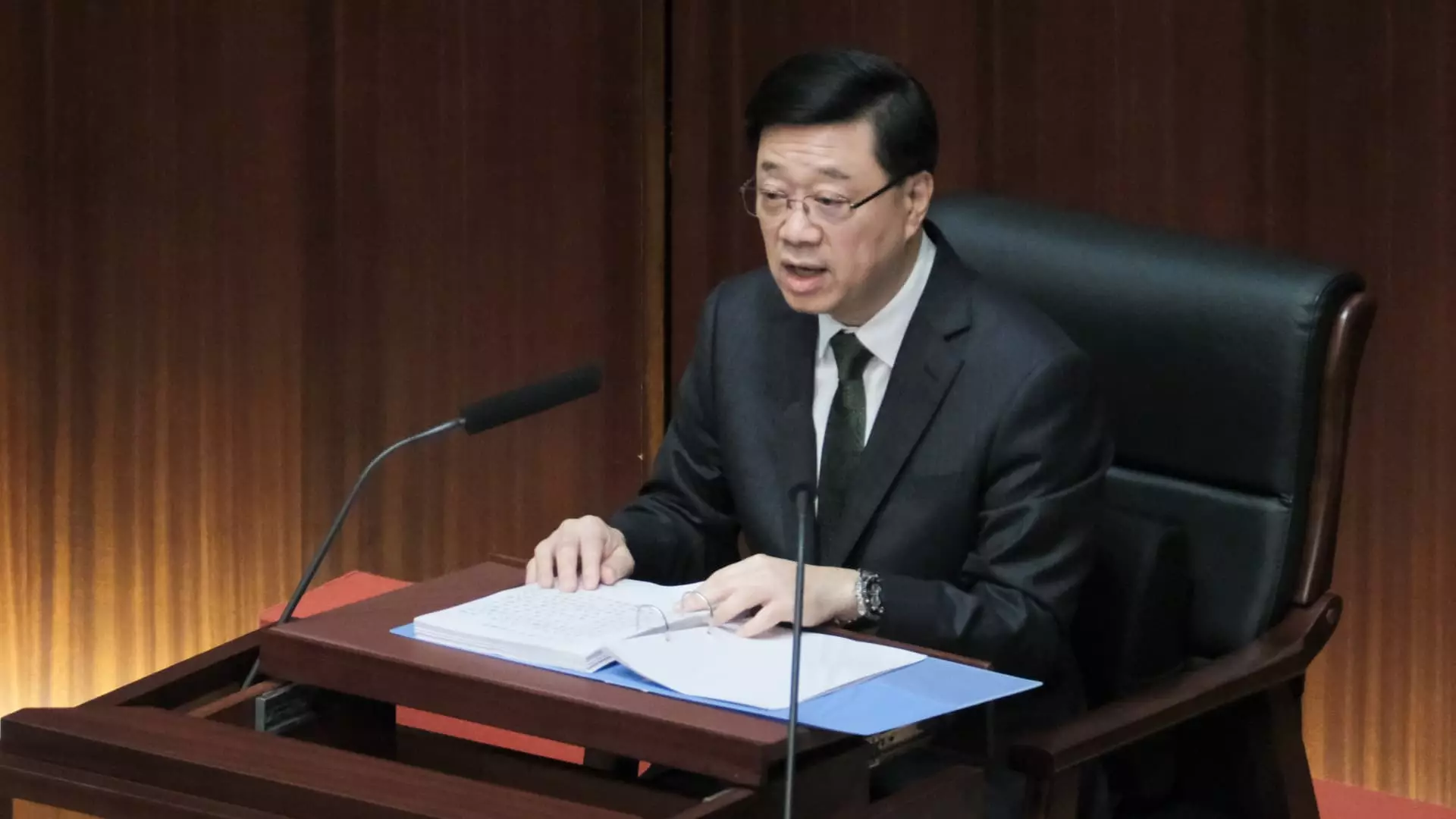In a significant address on Wednesday, Hong Kong’s Chief Executive John Lee confronted the city’s glaring housing affordability crisis, labeling it as an “issue of great public concern.” As Hong Kong continues to grapple with soaring living costs and a stagnant housing market, the urgency for actionable solutions couldn’t be clearer. The measures announced aim not only to alleviate the immediate struggles faced by citizens, particularly the under-40 demographic, but also to signal a strategic shift in the government’s approach to housing policy.
One of the standout proposals from Lee’s speech is the introduction of a more accessible pathway to subsidized housing for residents below 40 years old. This initiative is particularly critical given the alarming reports that many young Hongkongers are choosing to forgo career advancements merely to maintain their eligibility for public housing schemes. The Hong Kong Housing Authority’s decision to allocate an additional ballot number to applicants under 40 is a welcome change that could potentially enhance their chances of securing a spot in the much-coveted Home Ownership Scheme flats. Furthermore, by increasing the quota for the “White Form Secondary Market Scheme” by 1,500 units specifically for this demographic, the government aims to create a more inclusive housing market where young individuals can aspire to own rather than just rent.
Parallel to the subsidized housing initiatives, the government is reinforcing its commitment to youth housing through the continuation of the Youth Hostel Scheme. This program will facilitate partnerships with non-government organizations to provide affordable accommodations, mitigating the bleak reality faced by young residents in the city’s high-stakes housing market. Moreover, with over 100,000 subdivided flats criticized for poor health and safety standards, the proposal to revamp substandard units into “Basic Housing Units” is a commendable move. Ensuring these new units meet a minimum size requirement and fundamental facilities could greatly improve living conditions for numerous residents who currently find themselves in cramped and inadequate spaces.
Future Prospects: New Public Housing Units and Reduced Wait Times
The announcement also outlined tangible progress regarding public housing, with an ambitious goal to complete 9,500 new units by next year, ultimately aiming for 30,000 units by 2027-2028. As the average wait time for public housing is ridiculously long—currently at 5.5 years—Lee’s statement suggesting a reduction to 4.5 years by 2026-2027 is a step in the right direction. This proposed decrease not only reflects the government’s intent to respond to public discontent but also provides hope for those in dire need of housing solutions.
Lee’s policy address marks a strategic pivot in his leadership approach, steering away from previous focuses like national security and pandemic recovery measures. By prioritizing residents’ livelihoods and overall economic improvement, Lee seems keenly aware of the pressing needs of Hongkongers. The historical context of civil unrest and the difficulties of the pandemic have shaped the current public sentiment, which clamors for more actionable policies that directly improve quality of life rather than abstract security discussions.
While the measures announced by John Lee represent a potential turning point in Hong Kong’s housing landscape, the effectiveness of these policies ultimately depends on their implementation and follow-up. The path toward affordable housing in a city famously dubbed the least affordable in the world remains fraught with challenges. The government’s commitment to enhancing the living conditions of its most vulnerable populations is commendable, yet the road ahead will require persistent efforts, community engagement, and adaptive policymaking to ensure that progress is not only made but sustained. As Hong Kong stands at this critical juncture, it is crucial for all stakeholders involved—from government officials to grassroots activists—to rally together to envision and enact a more livable future for the city’s residents.

